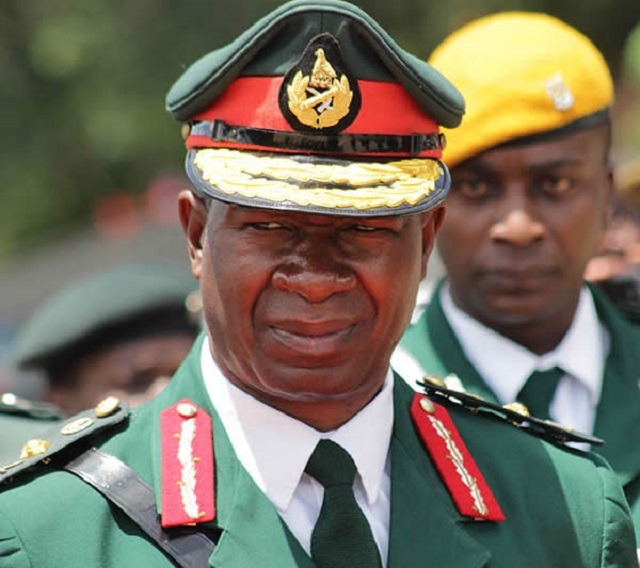United Kingdom based Zimbabwean lawyer, Brighton Mutebuka has responded to exiled former cabinet minister Jonathan Moyo’s assertion that the appointment of Zimbabwe Defence Forces boss Philip Valerio Sibanda to the ZANU PF Politburo does not violate the Supreme Law of the country.
Mutebuka says Moyo’s assertion is largely off the mark.
He writes:
With the greatest of respect, this attempt at dissecting CDF Sibanda’s appointment as an ex-officio member of ZANU PF’s Politburo is shallow, mortifying, misconceived, misleading and ill-advised on the following grounds:
a. At least three quarters of it is irrelevant & does not engage the subject matter at hand, choosing instead to go off-tangent & concentrate on attacking parties that are not the subject of the appointment as opposed to the specific terms of the applicable legal provisions and how they apply to the subject matter at hand.
b. There is also a clearly misconceived & self-serving attempt at interpreting key provisions of S208 of the Constitution which I have got no hesitation in deconstructing below:
“208 Conduct of members of security services
(1) Members of the security services must act in accordance with this Constitution and the law.
(2) Neither the security services nor any of their members may, in the exercise of their functions—
(a) act in a partisan manner;
(b) further the interests of any political party or cause;
(c) prejudice the lawful interests of any political party or cause; or
(d) violate the fundamental rights or freedoms of any person.
(3) Members of the security services must not be active members or office-bearers of any political party or organisation.
(4) Serving members of the security services must not be employed or engaged in civilian institutions except in periods of public emergency.”
c. Is ZANU PF not a civilian institution? The answer is in the affirmative. His appointment means that he is “engaged” as stipulated. Mind you the use of “must not” means it’s a peremptory or mandatory requirement.
d. There is no discretion permitted and disregarding it is only allowed in “periods of public emergency.” As it is common cause that there is no public emergency at the moment covered by the exception, it means that we can be confident that the appointment is clearly unconstitutional.
e. S208(1) becomes immediately relevant & applicable, meaning any other argument you have made is rendered operationally irrelevant very early on in the journey.
f. The next port of call will be the other provisions that you have cited. Once the CDF is appointed to a post by another political party, he, by definition, becomes operationally partisan.
g. That is because, he is now publicly and officially identified as an office holder of that party who is deemed to be committed to working in furtherance of the political goals of that party which goals are, by definition are partisan and discriminatory towards other political parties.
h. That naturally prejudices the political goals of other political parties and creates a conflict of interest between the Constitutional requirements of his office and the official and political goals of the political party that has appointed him, ZANU PF.
i. All Zimbabwean citizens are entitled to truly independent and credible state institutions, which engages their fundamental rights and freedoms per S208(2)(d).
j. The rights engaged under S67(1)(b) “to make political choices freely” are not absolute. They are open to all Zimbabwean citizens but restricted to certain classes of people like the CDF, by virtue of his office.
k. The restrictions imposed under S208 are actually meant to ensure the unfettered enjoyment of S67 rights by the majority of Zimbabwean citizens.
l. The CDF is also free to enjoy his S67 rights to the extent that they do not interfere with the official functions of his office, so he can vote, choose which political party he supports etc but do so discreetly.
m. Should he not wish to be so restricted, he can resign from his position and be an ordinary civilian. Serving as a CDF is a privilege which is only available or reserved to a select few in the history of nationhood! It is not disproportionate to ask such an office holder to be neutral in the national interest when performing his or her duties.
n. The attempt to distinguish between “active” and “non-active” membership is as mischievous as it is superficial and ill-conceived. By definition an ex-officio post involves “activity” or participation, that is the menace that the Constitution seeks to prevent.
n. It is quite tragic that despite having been forced into exile as a result of the political convulsions which took place in ZANU PF between 2014 & 17 and culminated in a coup, you continue to advocate for provocative, toxic, partisan, polarising and parochial interests which wrecks havoc and harms our social and political fabric to the point of reducing the country to a banana republic, choosing to be a nation-wrecker as opposed to a nation builder!













